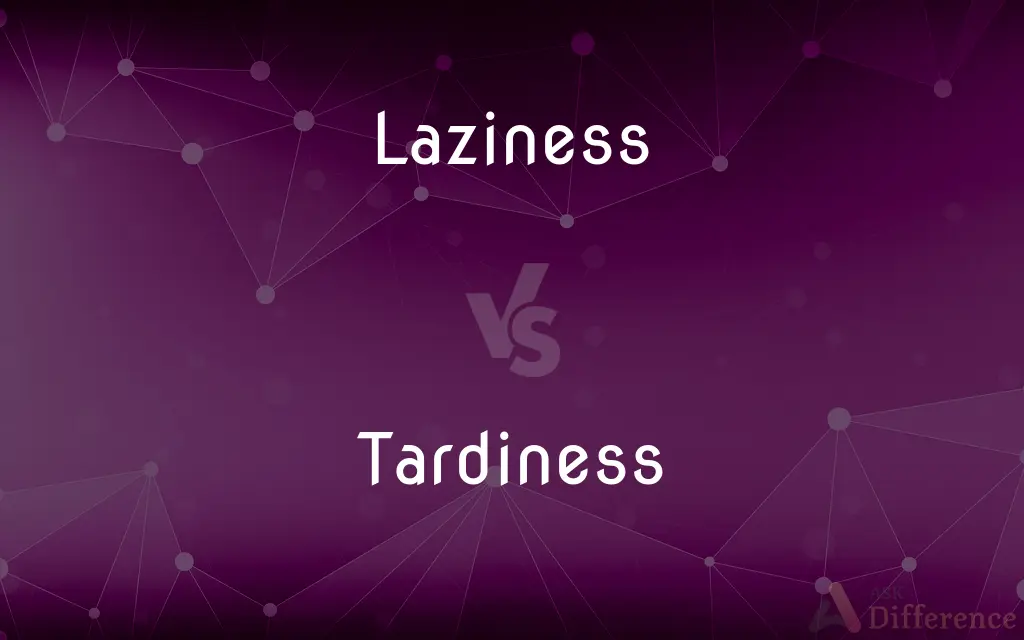Laziness vs. Tardiness — What's the Difference?

Difference Between Laziness and Tardiness
ADVERTISEMENT
Compare with Definitions
Laziness
Laziness (also known as indolence) is disinclination to activity or exertion despite having the ability to act or to exert oneself. It is often used as a pejorative; terms for a person seen to be lazy include "couch potato", "slacker", and "bludger".
Tardiness
Tardiness is the habit of being late or delaying arrival. Being late as a form of misconduct may be formally punishable in various arrangements, such as workplace, school, etc.
Laziness
Not willing to work or be energetic.
Tardiness
Occurring, arriving, acting, or done after the scheduled, expected, or usual time; late.
Laziness
Slow-moving; sluggish
A lazy river.
ADVERTISEMENT
Tardiness
Moving or progressing slowly; sluggish
Walking at a tardy pace.
Laziness
Conducive to inactivity or indolence
A lazy summer day.
Tardiness
(uncountable) The state or quality of being tardy.
Laziness
Depicted as reclining or lying on its side. Used of a brand on livestock.
Tardiness
(countable) The result or product of being tardy.
Laziness
The quality of being lazy
Tardiness
The quality or state of being tardy.
Laziness
The state or quality of being lazy.
Laziness travels so slowly, that Poverty soon overtakes him.
Tardiness
The quality or habit of not adhering to a correct or usual or expected time
Laziness
Inactivity resulting from a dislike of work
Laziness
Apathy and inactivity in the practice of virtue (personified as one of the deadly sins)
Share Your Discovery

Previous Comparison
Boring vs. Droll
Next Comparison
Gullibility vs. Innocence














































